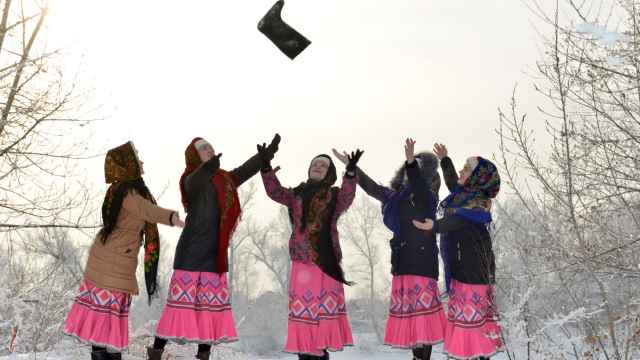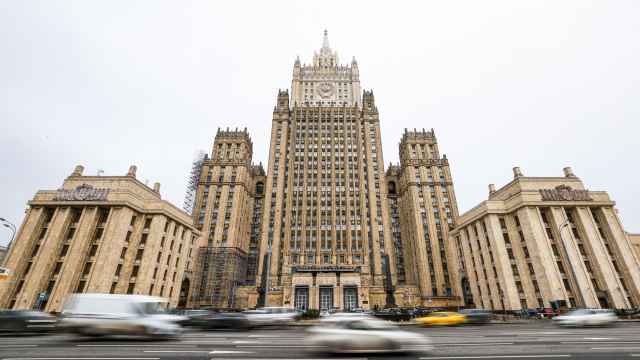Maxim Stepanenko, a missionary from the Tomsk diocese, justified his use of the word by saying that it is cognate with an archaic word for "deception" or "adultery" that appears in a Church Slavonic translation of the New Testament.
The modern-day expletive can be translated as "harlot," though it is commonly used as an all-purpose irate interjection by many Russian speakers.
Stepanenko said that the expletive was necessary to denounce the women who have babies without being married and suggested bring it back into common usage.
"Alas, the old Russian word [expletive] and all of its derivatives have become indecent," he said in an article published on a website run by the diocese last week. "This, of course, was no accident. There are so many [expletive] around, and this word is scorching."
The original article was removed from the website on Wednesday, but can still be seen in a .
The government has been trying to boost birth rates by offering financial incentives to parents with two or more children, but Stepanenko said the country was doomed as long as children were being born out of wedlock.
Nearly one-third of babies born in the Tomsk region in 2012 were born by single mothers, he said, citing regional government figures.
"So many [expletive] in the Tomsk land!" Stepanenko said, referring to single mothers. "We have no future."
A law signed by President Vladimir Putin last spring prohibits the Russian media from using the word, along with several other crude expletives, in print or broadcasts, with violations punishable by a fine.
A Message from The Moscow Times:
Dear readers,
We are facing unprecedented challenges. Russia's Prosecutor General's Office has designated The Moscow Times as an "undesirable" organization, criminalizing our work and putting our staff at risk of prosecution. This follows our earlier unjust labeling as a "foreign agent."
These actions are direct attempts to silence independent journalism in Russia. The authorities claim our work "discredits the decisions of the Russian leadership." We see things differently: we strive to provide accurate, unbiased reporting on Russia.
We, the journalists of The Moscow Times, refuse to be silenced. But to continue our work, we need your help.
Your support, no matter how small, makes a world of difference. If you can, please support us monthly starting from just $2. It's quick to set up, and every contribution makes a significant impact.
By supporting The Moscow Times, you're defending open, independent journalism in the face of repression. Thank you for standing with us.
Remind me later.






